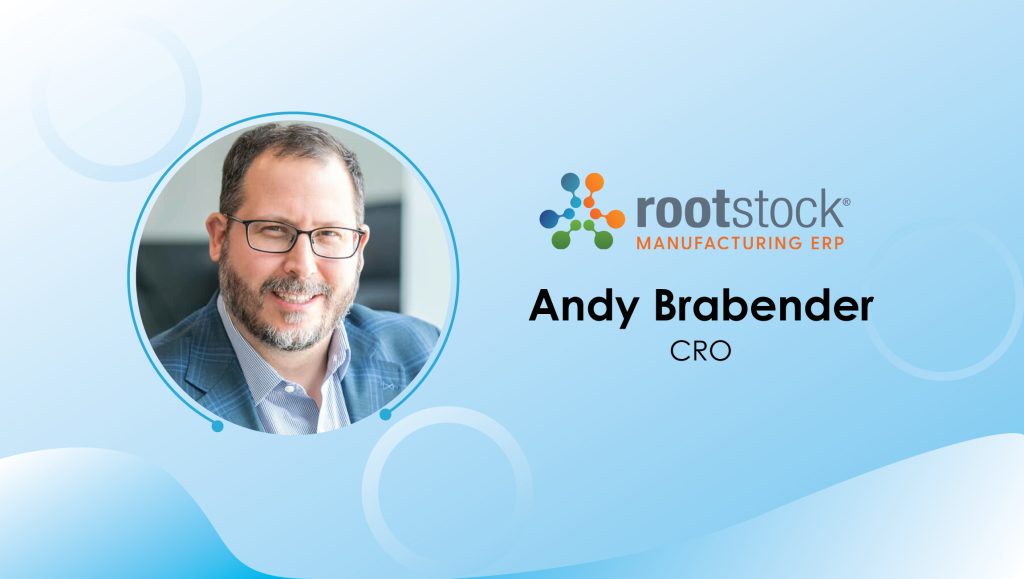Andy Brabender, CRO of Rootstock Software chats about a few fundamentals that sales and revenue teams should follow to drive business success in this catch up with SalesTechStar:
_________
Hi Andy, tell us about yourself and your sales journey in B2B SaaS…
I began my career during the advent of SaaS in the early 2000’s when I was with Ariba. Back then, the market was just starting to transition from on-premise to multi-tenant solutions—a groundbreaking shift at the time. Since Ariba, I’ve spent the last 20 years working exclusively in SaaS, contributing to hyper growth at companies like Service Channel, SMS Assist, and GridPoint. My career has spanned various verticals, including finance, retail, manufacturing, and residential, leading to billions in revenue across these sectors.
As such, my journey has been deeply rooted in SaaS, starting in operations and evolving into sales roles. I’ve had the opportunity to drive success in both dynamic startups and billion-dollar enterprises. What excites me about joining Rootstock is its unique position as the only Manufacturing ERP on the Salesforce Platform, combined with having the agility and innovative spirit as a private-equity-backed firm. My diverse experience equips me with the insights necessary to lead Rootstock to even greater success.
As Rootstock’s new CRO, what new strategies and sales practices are you looking to implement in the near future?
At Rootstock, my primary focus is on evolving our global sales strategy, motion, and execution to drive growth. We’ll be working to secure new logo opportunities while refining our sales process to make it highly repeatable. A key part of this strategy is equipping our team with the necessary tools and training to ensure consistency in execution.
I’m fortunate to step into a role with a highly capable go-to-market team already in place. Rather than overhauling everything—as many things are already working well—my approach is to elevate our efforts to the next level, evolving what’s effective into versions 2.0, 3.0, and beyond. By expanding our sales funnel, enhancing our processes, and fostering a culture of continuous improvement, we can drive sustained growth for Rootstock.
As a sales leader, how do you drive better global sales and alliances? What fundamental strategies and salestech will you implement for improving outcomes?
I don’t want to give too much away but we are expanding our reach into the market through internal efforts as well as through our amazing partner ecosystem. Driving better global sales and alliances starts with implementing a structured approach that can be effectively replicated across regions. A clear, well-defined sales process—what I envision as a ‘treasure map’—will guide our team members, ensuring they can follow best practices and are equipped with the tools they need to succeed, regardless of location.
A crucial part of this strategy is fostering a culture of accountability through rigorous measurement and reporting. By clearly defining each team member’s role and the impact they have on our overall success, we can drive better performance and alignment across the organization. Rootstock has also made substantial investments in our tech stack—which includes Salesforce Sales Cloud, LinkedIn Navigator, ZoomInfo, and Outreach. These tools are being more fully integrated into our sales playbook, optimizing their use to enhance our efficiency and effectiveness on a global scale.
More Insights from The SalesStar Podcast by SalesTechStar
Episode 200: B2B buying and selling habits with Raul Murguia, Sr Dir of Integrated Marketing for LinkedIn Sales Solutions
Read More: SalesTechStar Interview with Christina Brady, CEO of Luster AI
In your view, what core challenges do revenue and sales leaders face in today’s market when striving for faster growth?
In a highly commoditized market like ERP, we want to execute our sales and go-to-market strategy with precision in terms of our targets and product differentiation. We’re also working to ensure we’re leveraging the right talent and messages to stand out in a crowded field.
Another significant challenge experienced across the industry is having to do more with less. In today’s volatile economic environment, success isn’t about having unlimited resources. Anyone can cook up an amazing meal when they can afford Kobe beef. These days, it’s about being resourceful with the ingredients everyone has in their pantry, ensuring we deliver value and drive growth, even in the most challenging times.
As a modern tech CRO, what top revenue and sales practices do you feel need a complete overhaul?
The shift from product selling to outcome selling is where we’re going to focus going forward. It’s no longer just about pushing a product; it’s about aligning with what our customers are trying to achieve. The focus is on helping them to drive their desired outcomes rather than simply deploying a solution. This customer-centric, outcome-driven approach is critical for long-term success.
How do you envision the role of the typical tech CRO will change in the future?
Historically, CROs were either operational leaders or they were top salespeople elevated into the role. Now, the best CROs that I’ve met combine skills from both areas—driving numbers with a keen understanding of profitability and growth, while also being exceptional sales mentors. As the role matures, we’ll see more CROs who are equally adept at strategic planning and hands-on sales leadership.
What five daily best practices would you leave with sales and revenue teams?
Here are five best practices I encourage among our team members:
- Challenge Yourself: Always push yourself to disqualify those leads that don’t align with your goals.
- Embrace Discomfort: Growth happens when you step out of your comfort zone.
- Define Outcomes Clearly: Both for yourself and your customers; be crystal clear about what you’re aiming to achieve.
- Be Predictable: Consistency is key. Great salespeople close deals on their timeline, not just when an opportunity arises.
- Master Your Market: Become an expert in your product and industry. The more knowledgeable you are, the more value you bring to your customers, especially in guiding those who may not know how to buy effectively.
Read More: The Potential of Artificial Intelligence in Sales Enablement
Rootstock’s cloud ERP software helps manufacturers and distributors improve their processes, cut costs, and increase revenue. It offers a 360-degree view of a company’s business and customers, and includes modules for order management, manufacturing operations, supply chain, and financial management.
Andy Brabender, is CRO of Rootstock Software





















